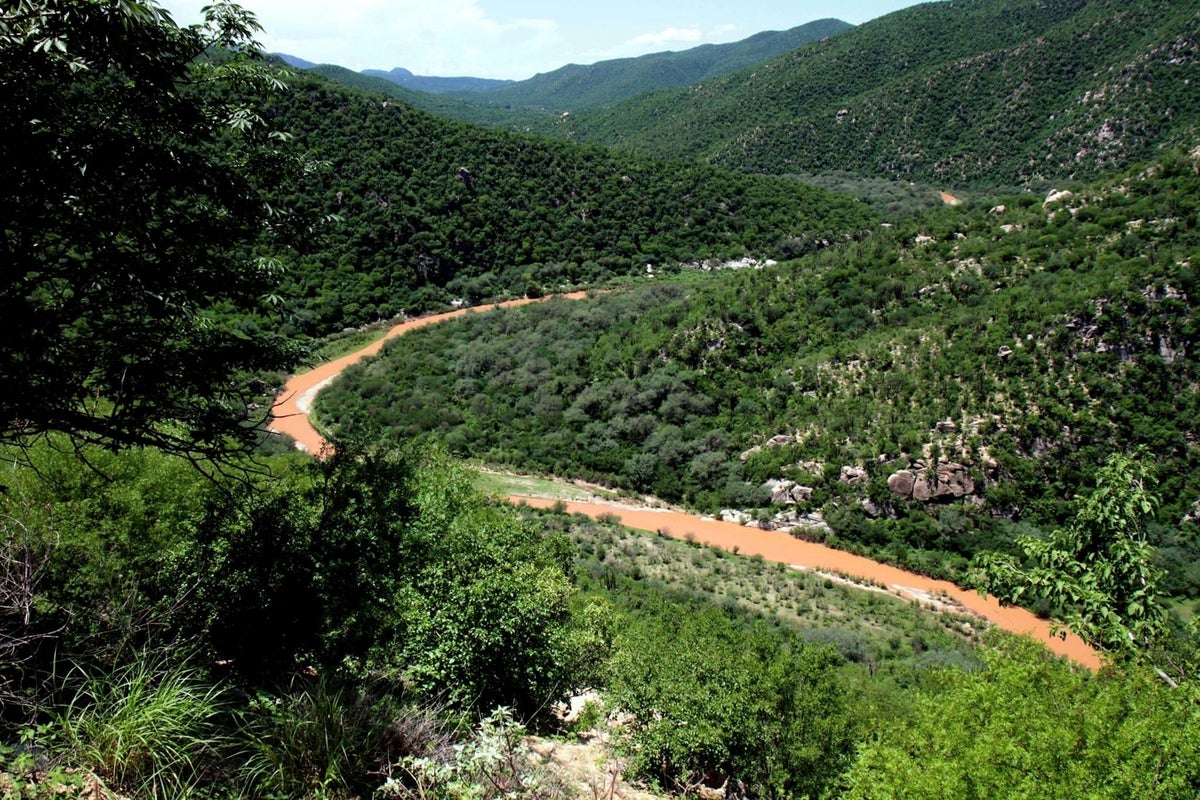
Residents in Mexico’s northern state of Sonora protested Tuesday against what they said is the government’s continued failure to clean up an almost decade-old mine spill.
At a news conference held outside government offices in Hermosillo, the state capital, members of the local advocacy group the Sonora River Basin Committee described the situation as a health crisis that authorities continue to ignore.
“You have asked us for patience and our patience has lasted almost two years," Martha Patricia Velarde said. "Today we tell you again: Bureaucracy should never be above the health and life of the people.”
Nine years ago, millions of gallons of toxic waste flooded from Grupo México’s Buenavista mine into the Sonora and Bacanuchi rivers, just under 60 miles (100 kilometers) from the border city of Nogales, Sonora.
Mexico’s environmental secretary María Luisa Albores González has described the spill as “the most serious environmental disaster in the history of metal mining in Mexico."
In a 2022 study, the state health department found 10% of residents in the polluted area — almost 100 square miles (250 square kilometers) around the spill — were at high or very high risk of developing arsenic poisoning.
After years of waiting, recent months have seen a flurry of encouraging rhetoric, but little apparent progress.
In September, Mexico’s environment department released a report describing “alarming” levels of pollution around the spill. Then the following month Albores announced the department had filed a legal complaint against Grupo México for failing to pay for the damage.
Since then what was the only remaining water treatment plant in operation closed at the end of November. Under an initial settlement, Grupo México agreed to open 36 treatment plants, but only began construction on 10.
The environmental department and a spokesperson for Grupo México declined to comment on Tuesday's protest or give any updates on the government's legal complaint.
The mining company's spokesperson referred to an October news release in which the company declined responsibility for pollution in the region.
“The environmental conditions and integrity of the Sonora and Bacanuchi river ecosystems are the same as they were before the 2014 accident,” read the statement. “The Sonora river region has suffered the effects of continuous disinformation campaigns ... causing fear and unfounded distrust.”







